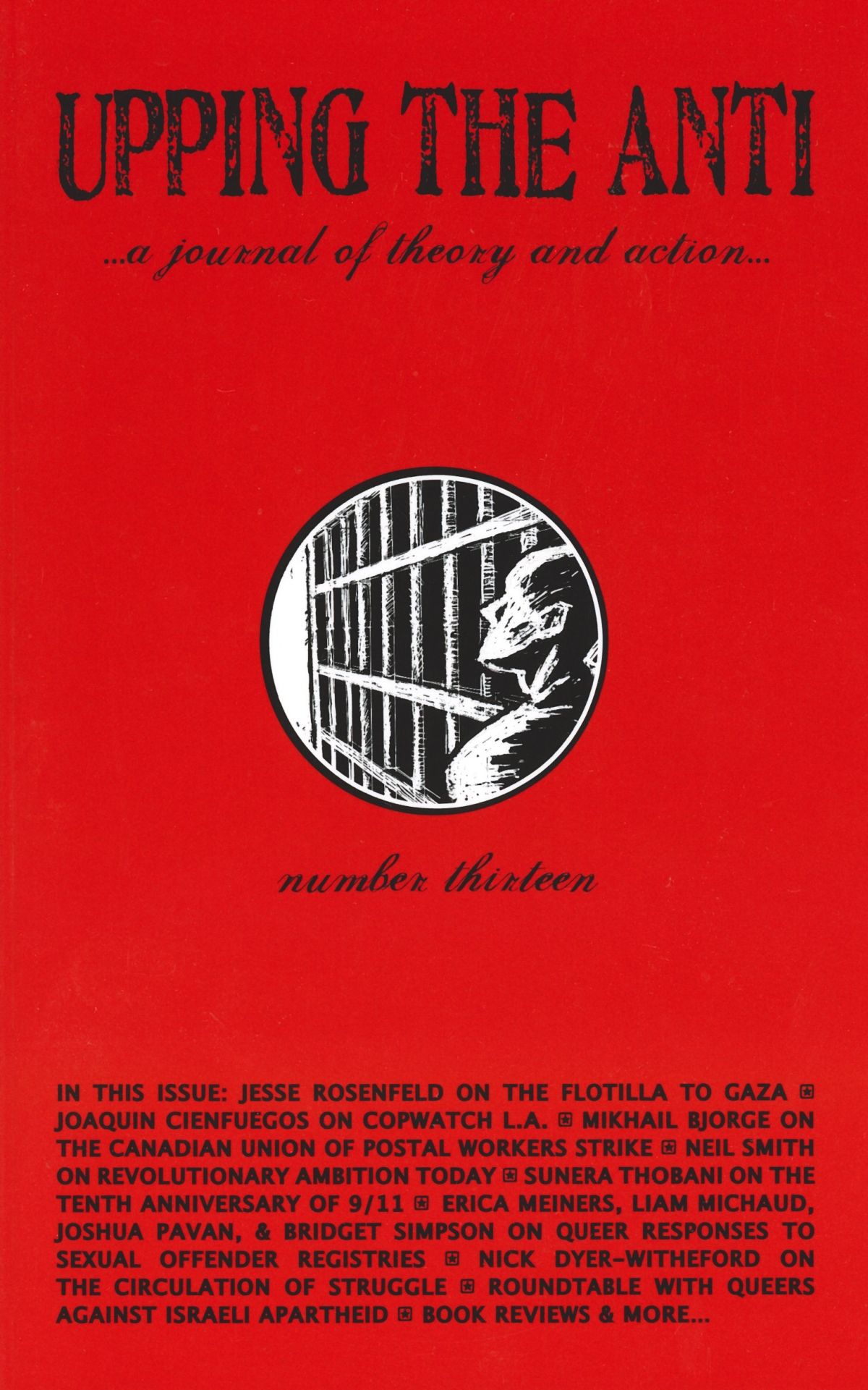No Raw Energy
Dear UTA,
It’s certainly the case that, in North America, the Right has been more successful than the Left in mobilizing and expanding its constituency in the wake of the current economic crisis. And clearly there’s a dimension of affective investment that’s crucial to understanding it’s appeal. As you point out in the editorial in UTA 12, understanding this appeal implies that we take seriously the possibility that political partisanship and militant conviction are not reducible to a mere calculation of rational interests. We must dispense with crass conceptions of false consciousness that try to explain conservatism among working people as a simple matter of being deceived about one’s own material good. Taking affect seriously has a dethroning effect on the faculty of understanding: what makes a person care about changing the world – whatever form this change takes – cannot reside in ideas alone. Fact is often subsequent to, and steered by, feeling; and having the best argument isn’t guaranteed to provoke a sense of urgency in one’s audience.
However, beyond these more general agreements, I have some trouble with the way you frame the stakes of this problem. You rightly reject the facile affective economism that responds to the current absence of robust left movements by saying that “things must get worse before they get better” (thereby reducing the relation between affect and will to a kind of brute economic determinism). Nevertheless, you present disaffection as if it was a raw energy awaiting guidance and that the only question is one of steering, piloting, or channeling it differently. I think it’s a mistake to frame the question in this way for two reasons.
First, if someone is upset, they’re never upset in general; they’re upset because of this or that. How they frame these reasons, how they locate the source of their unease, depends on the way they experience the problem. A person’s sense of frustration is never a self-evident consequence of an objective state of affairs. The way a crisis is experienced has everything to do with the pre-existing composition of their desires and capacities, the distribution of the important and the interesting that commands their sensibilities, making them sensitive to this or that rather than something else.
This relates to a second issue, since it seems that what leads you to treat disaffection as a generic phenomenon is a deeper psychologistic assumption about the will to change as such. You return several times to the idea that there are something like universal social drives whose satisfaction you invoke not only to explain the appeal of the new forms of the political right (eg. Glenn Beck), but which simultaneously act as the basis for potential alliances between its constituency and ours. Despite minor or major ideological differences between Bible thumpers and anti-capitalists, what connects us all at a deeper level is our “desire to live an autonomous and meaningful life,” our need to be “part of something larger,” and to reach “individual self-realization.” By treating this drive as universally possessed irrespective of social position, a commonality by default is assumed from the outset.
This faith in the generic will to autonomy influences the practical conclusions you draw. By installing a division between latent desires and the manifest partisan channels that steer affect, the political problem is conveniently simplified: the hard part (inciting reaction to capitalism’s insufferability and igniting a sense of political urgency) gets passed over such that the only problem left is to capture and steer an unformed energy in “useful” directions and provide “non-perverse” and “non-mythical” solutions to supposedly common problems. But the problems the Right poses are not the same as those posed by the radical Left.
If I don’t share your view that a generic desire for autonomy is “the affective base of all revolutionary politics,” it’s because this premise leaves no room for what is proper to critique, that is, the practice of intervening in people’s lives in order to pose radical problems (and not just debate solutions), to reframe their sense of what kinds of questions are important and interesting within the political sphere. Critique matters because the types of phenomena that compel us to change the world – and spur us to pursue the difficult work of activism are as divergent and distinct as the problems that frame the social field. Politics begins by experiencing social life as a problem, so it matters which problem and why. Militancy doesn’t arise from a latent and impersonal drive for freedom but from experiences that disturb the smooth functioning of everyday drive satisfaction and that make our world insufferable, derisory, or inappropriate.
If we take this will for granted (if we treat it as a self-evident trait or predicate of human nature present in every subject by default), we lose hold of what is fundamental to the task of political criticism.
In solidarity,
Kieran Aarons
Chicago

